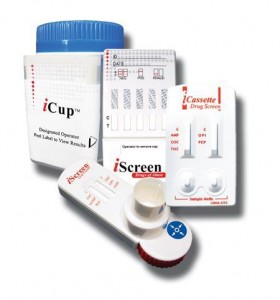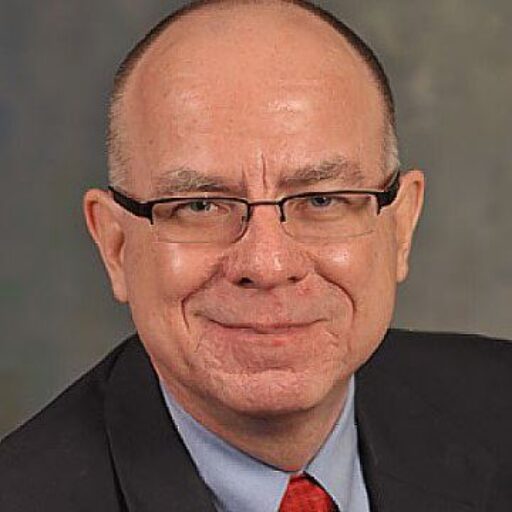 Rescue missions depend on labor provided by people in their programs to do a variety of tasks that are essential to their operations. Men and women in recovery programs can be found in kitchens, performing housekeeping and maintenance tasks, providing office support, and driving trucks to pick up donations. Certainly, we value the services they provide.
Rescue missions depend on labor provided by people in their programs to do a variety of tasks that are essential to their operations. Men and women in recovery programs can be found in kitchens, performing housekeeping and maintenance tasks, providing office support, and driving trucks to pick up donations. Certainly, we value the services they provide.
Equally important, though, is the need to give additional meaning to their efforts by creatively using their work assignments to invest in their lives. What follows is a list of some ways this can be accomplished:
A. Develop a purpose statement for rescue mission work projects – We need to have a definite philosophical basis for every activity in which we involve program participants that is both spiritually sound and “therapeutic.” In other words, we need an official statement that establishes the fact that we are not just looking for free labor, but rather that the work they do really is intended to help them. If people in our programs feel used, they are certain to shut themselves down to the recovery process. The mission is there for the clients, they are not there for the mission!
B. Develop a written, individualized plan that makes their work projects an important part of the rehabilitation program. The most effective means of clarifying and monitoring the goals and objectives we set for program participants is to use a written recovery plan. This written plan identifies the various issues they will work on while with in the program. It should also ties all of the significant activities in which they participant be involved and states exactly what is to be accomplished through each of them. The work performed by the resident, if is truly rehabilitative in nature, will help them to work on such goals as developing new, healthy attitudes toward work and responsibility, becoming more employable by acquiring new job skills, etc..
C. Use work assignments to teach essential Biblical concepts of work and stewardship – In 1995, Roper Starch surveyed employers about hiring the homeless and those on Welfare. They discovered that employers believe the right attitude is 10 times more important than work skills in entry-level employees. They cited interpersonal skills such as dependability (90%), honesty (89%) and the ability to follow instructions (86%) as far more essential than technical skills like typing (11%), prior work experience (15%) and knowledge of office systems (14%).
A well-conceived work program is a very effective vehicle for helping program participants develop a health attitude toward work. A part of the formal curriculum of our programs, we need to instruct residents in the scriptural principles that show them God’s perspective on their labors. They need to understand that our work, our talents, and our time all belong to God, since they were given by Him. Stewardship involves our accountability before God and others who have blessed us — for instance donors whose generosity enables the mission to continue its work. Both staff and residents are responsible to them and to God for taking care of the facilities and equipment that have been entrusted to them.
D. Use work assignments as career training opportunities — To assist them with future employment, we must do all we can to help residents to learn real job skills through their work projects. One example of this is the rescue mission who send all of the program men working long-term in their kitchen to the food safety course sponsored by the National Restaurant Association. While this may involve some investment in staff time and possibly the expense of outside training opportunities, it will have definite payoffs. The same can be done for office and maintenance work. We need to be creative about using work done at the rescue mission to help them prepare for gainful employment after they complete our programs.
E. Develop a system of rewards for work well done – To avoid the appearance of an employment situation with wages being paid, we cannot use monetary rewards. Legally, stipend amounts should be kept exactly the same for all program participants at a same level or phase of your program – regardless of the actual hours they work or the quality of their labor. However, there are certain privileges that can be granted, a private room, for instance, or extra free time, or even certificates or awards given out each month to good workers. The goal is to make sure that we provide them with a pay-off for putting their hearts into doing a good job. This is a lesson many have never learned.
Some Words of Caution
A. Avoid anything that would imply an employee/employer relationship between the resident and the rescue mission. — This starts in the initial intake session, where residents are asked to sign an agreement indicating that they understand that some hours of work will be a part of their recovery program. And, that this is a part of their rehabilitation and does not constitute an employee/employer relationship for which they will receive wages. This also means avoiding the use of terms like “staff” and “wages” when referring to the work residents do. It is more appropriate to call money they receive a “stipend”, “sustenance allowance” or simply a “gift.”
B. Remember that it takes a full 30 days to completely detoxify from alcohol and drugs – During the first few weeks we need to be careful about what types of work assignments we give them. They will have problems with logical thinking, short-term memory, and motor coordination. Avoid jobs that could be potentially dangerous to people who are in their early days of sobriety such as work on ladders, handling of potentially hazardous materials, etc.
C. Don’t let program participants “hide” in their work — We often use the term “dry drunk” to refer to people who put down the bottle but never begin a life of recovery. Without drugs or alcohol, addicts will often become compulsive about other activities as a way to manage their emotions. This could include things like work. TV, exercise, etc. So, we need to be watchful about program participants who seek overly eager to work, which may indicate a desire to stay busy in order to avoid working on themselves.
D. Don’t give them authority over other program participants — The Apostle Paul warns Timothy to avoid giving new converts too much authority too quickly, lest they fall into pride and other snares of the devil. ( I Tim 3:7). For recovering addicts, grandiosity is a major problem. It is very easy for them to take the focus off of themselves and onto controlling others. This can result in an abuse of the authority we give them, which can create all sorts of problems among people in your program. My recommendation: only paid staff members should be given authority over program participants.
E. Don’t give them assignments that subject them to unnecessary temptation. For instance, too much exposure to people still living on the streets and using alcohol and drugs or too much contact with unstable people of the opposite sex.
F. Hire those who have proven their worth. – It is very tempting to “missionize” talented people by keeping them “in the program” indefinitely. A better arrangement is to fill important positions (cooks, drivers, etc.) with individuals in a latter phase of a program who become actual temporary employees of the mission. These individuals will naturally be more stable and dependable. Minimum wage requirements may be met by combining cash payments with the established “fair market” value of the housing and meals that are provided. In most cases, the mission is then only responsible for the FICA withholding and matching payments, since non-cash compensation is usually not subject to state and federal employment taxes. Not only will this arrangement reward those who are doing well in their recovery, it also assists them to begin re-establishing an employment record.
Like this:
Like Loading...
 Certainly, drug testing is an important tool for managers of residential recovery programs. Dishonesty is one of the hallmarks of addiction. So, keeping those who have expressed a desire to change accountable is a good thing. But, is it possible to overdo it?
Certainly, drug testing is an important tool for managers of residential recovery programs. Dishonesty is one of the hallmarks of addiction. So, keeping those who have expressed a desire to change accountable is a good thing. But, is it possible to overdo it?
 For Christian programs that work to help addicts, the primary goal is to help them to become integrated into two vital communities – the Church and the recovery community. If our goal is truly to work ourselves out of a job, then we must make sure we are spending enough time and energy preparing our clients for life after our programs. If we don’t, we have done them a great injustice. No matter how success we are with newly sober clients, they will still leave or programs as struggling baby Christians. We must be sure that these new believers knows where to find help when they experiences struggles, even 2, 5, 10 years and more in the future, no matter where they live.
For Christian programs that work to help addicts, the primary goal is to help them to become integrated into two vital communities – the Church and the recovery community. If our goal is truly to work ourselves out of a job, then we must make sure we are spending enough time and energy preparing our clients for life after our programs. If we don’t, we have done them a great injustice. No matter how success we are with newly sober clients, they will still leave or programs as struggling baby Christians. We must be sure that these new believers knows where to find help when they experiences struggles, even 2, 5, 10 years and more in the future, no matter where they live. Rescue missions depend on labor provided by people in their programs to do a variety of tasks that are essential to their operations. Men and women in recovery programs can be found in kitchens, performing housekeeping and maintenance tasks, providing office support, and driving trucks to pick up donations. Certainly, we value the services they provide.
Rescue missions depend on labor provided by people in their programs to do a variety of tasks that are essential to their operations. Men and women in recovery programs can be found in kitchens, performing housekeeping and maintenance tasks, providing office support, and driving trucks to pick up donations. Certainly, we value the services they provide. 

